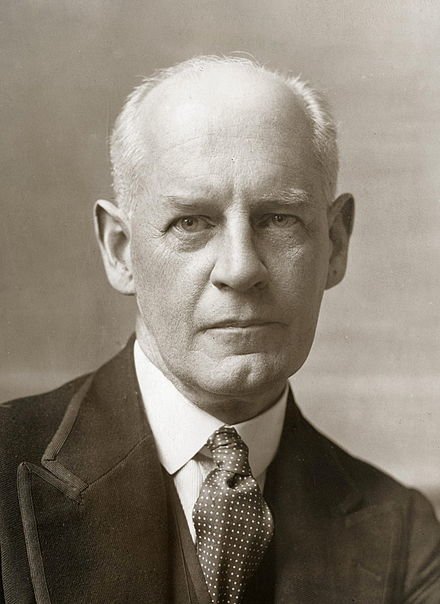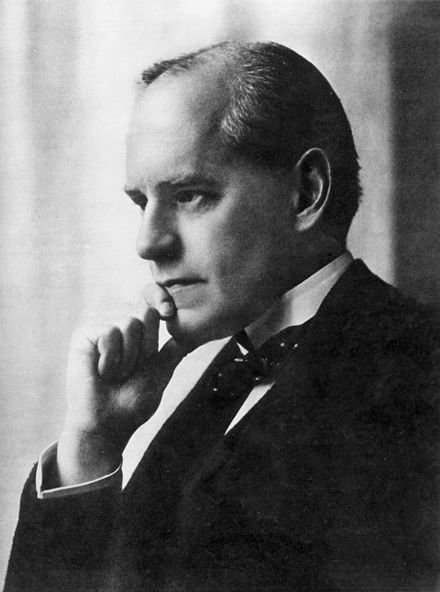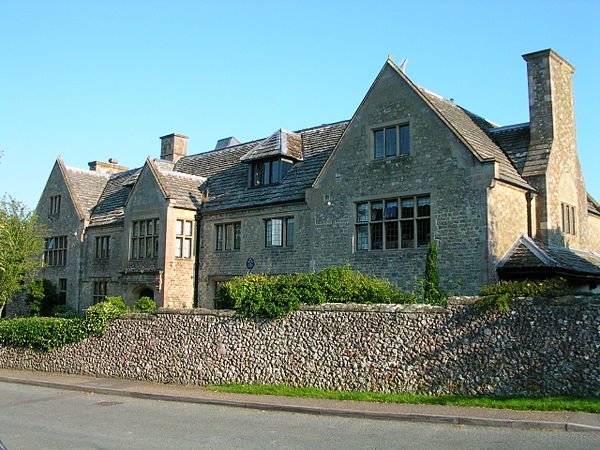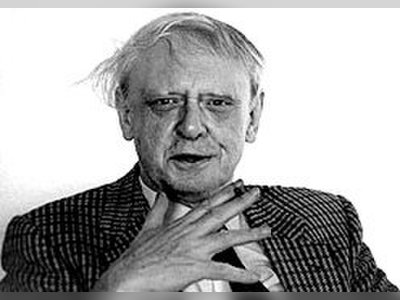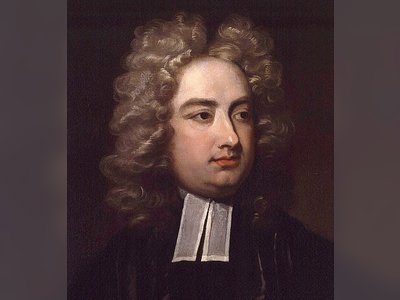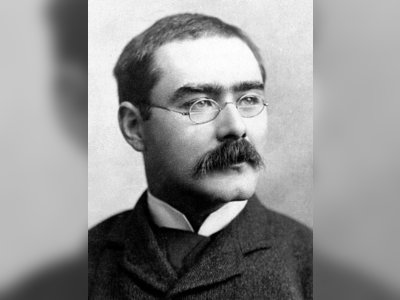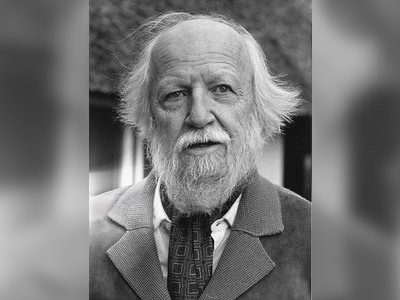British Heritage
Remember, Cherish, Learn.
beta
John Galsworthy - Chronicler of the Class System, Winner of the Nobel Prize
A Pillar of British Heritage and the Chronicler of Class.
Born in an era of rapid social transformation and grappling with the consequences of an industrial revolution, John Galsworthy (14 August 1867 – 31 January 1933) has etched his name firmly in the annals of British literature. His illustrious career as a novelist and playwright remains marked by a discerning critique of the class system, making him one of the leading cultural architects of Edwardian society. His work, resplendent with the minutiae of his era, contributes richly to the fabric of British heritage.
A native of Kingston Hill, Surrey, England, Galsworthy was born into a well-off family that prided itself on its sizable property holdings. His upbringing and early education, including time at Harrow and New College, Oxford, were characteristic of the upper-middle-class. Despite his law degree and subsequent call to the bar in 1890, Galsworthy's heart lay elsewhere – in the exploration of foreign lands and the charm of the written word.
During his early travels, Galsworthy formed a close friendship with another budding novelist, Joseph Conrad. This relationship would prove crucial in shaping Galsworthy's literary pursuits. His personal life, too, was marked by the unconventional. He embarked on a decade-long affair with Ada Nemesis Pearson Cooper, his cousin's wife, whom he married after her divorce. Their relationship, characterised by both passion and discretion, would provide substantial material for his later works.
Galsworthy's initial foray into literature was marked by an air of anonymity. His early works, including his debut collection of short stories, were published under the pseudonym 'John Sinjohn.' However, following his father's death, he embraced his true identity, commencing a prolific career that spanned both novels and plays.
His first successful play, The Silver Box (1906), set the tone for his subsequent theatrical endeavors. His plays, like those of his contemporary George Bernard Shaw, employed the stage as a platform for socio-political commentary. Strife (1909) and The Skin Game (1920), among others, dissected the dynamics of the class system with a level of nuance and sensitivity that was unprecedented.
Yet, Galsworthy's novels, particularly The Forsyte Saga, secured his enduring fame. The saga's exploration of the eponymous Forsyte family offers a rich, detailed tableau of upper-middle-class lives, their aspirations, their hypocrisies, and their intrinsic human struggles. Irene, one of the key characters drawn from his wife Ada, offered a poignant depiction of the plight of women trapped in unhappy marriages.
Beyond his literary contributions, Galsworthy used his public influence to champion various causes. He was a vocal advocate for prison reform, women's rights, and animal welfare. His resistance to censorship and his call for war on Germany during the First World War exemplified his commitment to democracy and justice.
Despite his extensive service during the war, Galsworthy declined a proposed knighthood, insisting that a writer's reward lies solely in their craft. His love for animals led him to oppose hunting and actively participate in the League for the Prohibition of Cruel Sports.
Although he declined a knighthood, Galsworthy was no stranger to recognition. In 1921, he was elected the first president of the PEN International literary club, a testament to his global literary influence. His subsequent appointment to the Order of Merit in 1929 further acknowledged his cultural contributions.
His crowning achievement came in 1932 when he was awarded the Nobel Prize in Literature. By then, severely ill, he was unable to attend the ceremony. He generously donated his prize money to PEN International, reinforcing his commitment to the fraternity of writers.
Galsworthy passed away in 1933, leaving behind an enduring legacy. His ashes scattered over the South Downs from an airplane, a fittingly unconventional tribute for a man who continually defied societal norms.
Galsworthy's profound impact on British literature is undisputed. His work reflects the essence of an era and has provided a valuable lens for historical and cultural understanding. His meticulous examination of class, morality, and human nature has influenced numerous writers, scholars, and social commentators.
His legacy is palpably present in his hometown of Kingston, where streets and university buildings bear his name. His papers, letters, and literary effects are meticulously preserved at the University of Birmingham Special Collections. Yet, perhaps his most enduring memorial is the renewed interest in his work that followed the successful adaptation of The Forsyte Saga into a television series in 1967.
John Galsworthy's life, marked by both personal rebellion and an unwavering commitment to social critique, mirrors the turmoil and transformation of his time. His enduring legacy is testament to his unique contribution to British heritage, a heritage that continues to shape and inform the nation's understanding of itself and its past. As we continue to delve into his works, we uncover fresh insights into the human condition, underscoring his timeless relevance.
Early Life and Education
A native of Kingston Hill, Surrey, England, Galsworthy was born into a well-off family that prided itself on its sizable property holdings. His upbringing and early education, including time at Harrow and New College, Oxford, were characteristic of the upper-middle-class. Despite his law degree and subsequent call to the bar in 1890, Galsworthy's heart lay elsewhere – in the exploration of foreign lands and the charm of the written word.
During his early travels, Galsworthy formed a close friendship with another budding novelist, Joseph Conrad. This relationship would prove crucial in shaping Galsworthy's literary pursuits. His personal life, too, was marked by the unconventional. He embarked on a decade-long affair with Ada Nemesis Pearson Cooper, his cousin's wife, whom he married after her divorce. Their relationship, characterised by both passion and discretion, would provide substantial material for his later works.
Career: An Unflinching Exploration of Class
Galsworthy's initial foray into literature was marked by an air of anonymity. His early works, including his debut collection of short stories, were published under the pseudonym 'John Sinjohn.' However, following his father's death, he embraced his true identity, commencing a prolific career that spanned both novels and plays.
His first successful play, The Silver Box (1906), set the tone for his subsequent theatrical endeavors. His plays, like those of his contemporary George Bernard Shaw, employed the stage as a platform for socio-political commentary. Strife (1909) and The Skin Game (1920), among others, dissected the dynamics of the class system with a level of nuance and sensitivity that was unprecedented.
Yet, Galsworthy's novels, particularly The Forsyte Saga, secured his enduring fame. The saga's exploration of the eponymous Forsyte family offers a rich, detailed tableau of upper-middle-class lives, their aspirations, their hypocrisies, and their intrinsic human struggles. Irene, one of the key characters drawn from his wife Ada, offered a poignant depiction of the plight of women trapped in unhappy marriages.
Advocacy and Causes
Beyond his literary contributions, Galsworthy used his public influence to champion various causes. He was a vocal advocate for prison reform, women's rights, and animal welfare. His resistance to censorship and his call for war on Germany during the First World War exemplified his commitment to democracy and justice.
Despite his extensive service during the war, Galsworthy declined a proposed knighthood, insisting that a writer's reward lies solely in their craft. His love for animals led him to oppose hunting and actively participate in the League for the Prohibition of Cruel Sports.
Honours and Final Years
Although he declined a knighthood, Galsworthy was no stranger to recognition. In 1921, he was elected the first president of the PEN International literary club, a testament to his global literary influence. His subsequent appointment to the Order of Merit in 1929 further acknowledged his cultural contributions.
His crowning achievement came in 1932 when he was awarded the Nobel Prize in Literature. By then, severely ill, he was unable to attend the ceremony. He generously donated his prize money to PEN International, reinforcing his commitment to the fraternity of writers.
Galsworthy passed away in 1933, leaving behind an enduring legacy. His ashes scattered over the South Downs from an airplane, a fittingly unconventional tribute for a man who continually defied societal norms.
Legacy and Influence
Galsworthy's profound impact on British literature is undisputed. His work reflects the essence of an era and has provided a valuable lens for historical and cultural understanding. His meticulous examination of class, morality, and human nature has influenced numerous writers, scholars, and social commentators.
His legacy is palpably present in his hometown of Kingston, where streets and university buildings bear his name. His papers, letters, and literary effects are meticulously preserved at the University of Birmingham Special Collections. Yet, perhaps his most enduring memorial is the renewed interest in his work that followed the successful adaptation of The Forsyte Saga into a television series in 1967.
John Galsworthy's life, marked by both personal rebellion and an unwavering commitment to social critique, mirrors the turmoil and transformation of his time. His enduring legacy is testament to his unique contribution to British heritage, a heritage that continues to shape and inform the nation's understanding of itself and its past. As we continue to delve into his works, we uncover fresh insights into the human condition, underscoring his timeless relevance.
- John Galsworthyen.wikipedia.org
